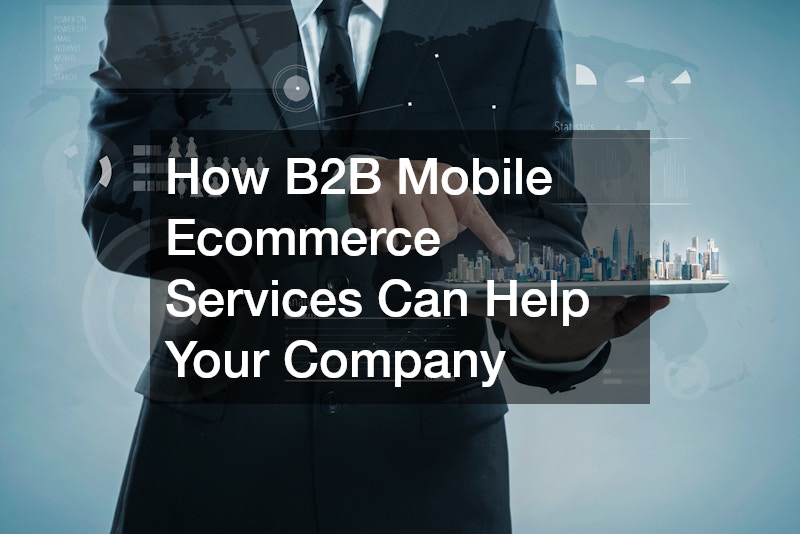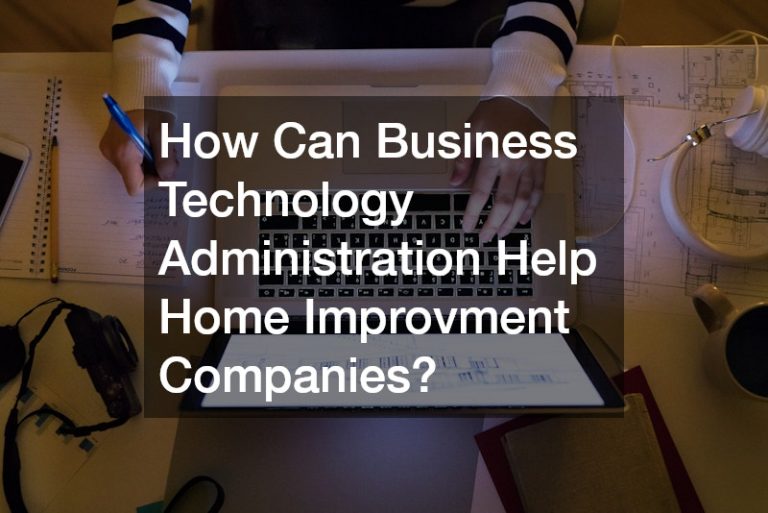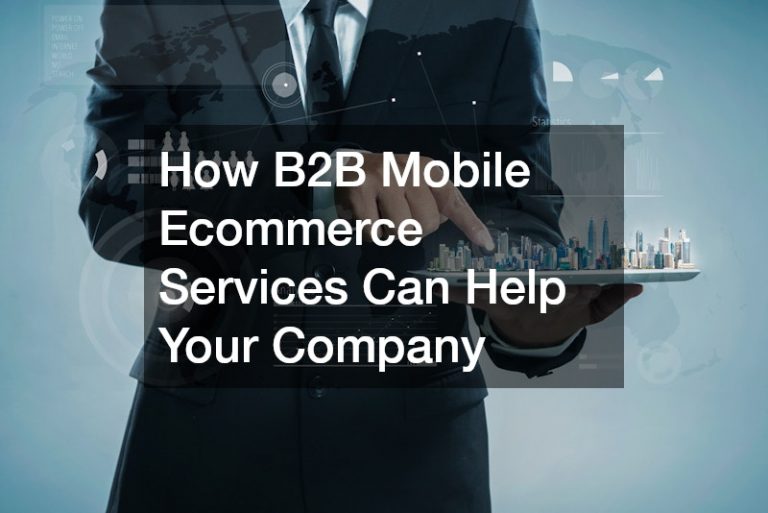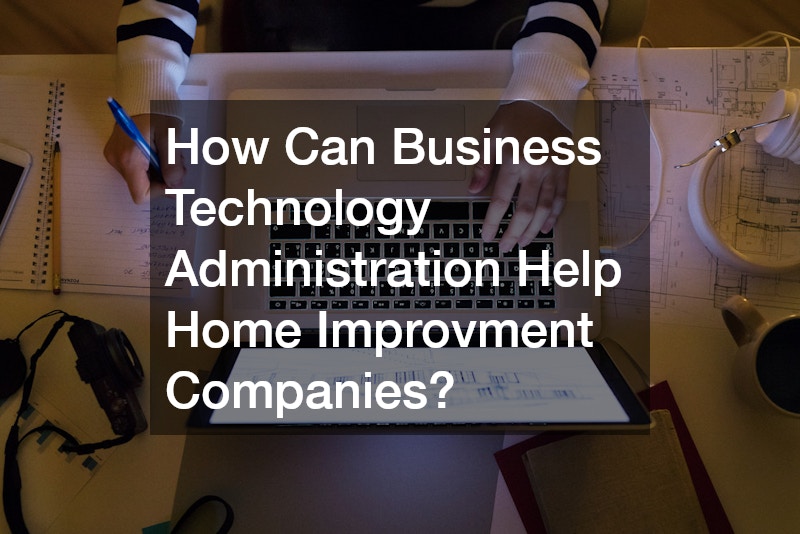In today’s fast-paced digital landscape, the implementation of B2B mobile ecommerce services is not just an option but a necessity. Companies across various industries, including those specializing in land packages, adhesive coating manufacturers, and paving contractors, are realizing the immense benefits that these tools provide. With mobile ecommerce, businesses can streamline operations, enhance customer interactions, and boost sales, all while operating more efficiently.
The rise of mobile technology has transformed how companies conduct their business. For example, a trucking company may utilize B2B mobile ecommerce services to optimize route planning and enhance customer communication. Similarly, industries such as propane services and air quality service are leveraging these technologies to create a seamless purchasing experience, ensuring that they remain competitive.
This article will explore how B2B mobile ecommerce can transform your business operations and growth strategies. By examining the various components—from improving efficiency to enhancing customer experiences—you’ll understand why incorporating these services is essential for the future of your company.
1. What Are B2B Mobile Ecommerce Services?
B2B mobile ecommerce services are transactional platforms designed for businesses to sell products and services through mobile devices. Unlike traditional ecommerce, which often focuses on direct consumer sales, B2B mobile ecommerce caters specifically to the needs of companies, such as garbage companies looking to manage orders or structural engineers needing supplies. With mobile platforms, businesses can access a plethora of tools that facilitate transactions, inventory management, and customer engagement—all directly from their smartphones.
One prominent feature of B2B mobile ecommerce services is their ability to support complex sales processes typically involved in industries like trucking and propane services. The need for strong partnerships and detailed negotiations is crucial, making mobile capabilities essential for executing transactions swiftly. Furthermore, features like GPS tracking for construction equipment can be integrated, ensuring timely project management and service delivery.
Ultimately, B2B mobile ecommerce services bridge the gap between businesses, ensuring that transactions are smooth, reliable, and user-friendly. The ease of access provided by mobile platforms allows organizations to place and manage orders anywhere and at any time, significantly boosting productivity and customer satisfaction.

2. How Can B2B Mobile Ecommerce Improve Business Efficiency?
Efficiency is a critical factor in the success of any business, especially in B2B sectors where timelines and accuracy are paramount. B2B mobile ecommerce services enable organizations, such as adhesive coating manufacturers and playground turf suppliers, to streamline their ordering processes. By allowing customers to place orders directly through a mobile app or website, these services eliminate the need for lengthy phone calls or emails, reducing response times considerably.
Additionally, using B2B mobile ecommerce platforms allows companies to automate various tasks related to order fulfillment and inventory management. This automation significantly reduces human error, which is critical for businesses that rely on precise delivery schedules, such as paving contractors negotiating bids or garbage companies managing waste collection routes. Incorporating GPS tracking for construction equipment into these platforms further enhances operational efficiency, providing real-time insights into equipment usage and resource allocation.
The efficiency gains realized through B2B mobile ecommerce can lead to cost savings and increased revenue. By optimizing workflows and reducing operational frictions, companies can reallocate resources towards growth-oriented activities, transforming basic functions into strategic advantages.
3. What Are the Cost Implications of Implementing B2B Mobile Ecommerce?
When weighing the benefits of B2B mobile ecommerce, it’s essential to assess the cost implications associated with implementation. Initially, businesses may face upfront costs for the development and integration of mobile platforms, especially for industries like propane services, which may require extensive customization to meet specific operational needs. Additionally, companies must consider ongoing costs related to maintenance, upgrades, and security measures.
However, despite these costs, the long-term savings and revenue potential often outweigh the initial investment. For instance, a structural engineer might find that automating client interactions through mobile ecommerce decreases reliance on manual operations, thus saving time and labor costs. By harnessing the power of technology, companies can improve their profit margins and create a more scalable business model.
Moreover, the flexibility offered by B2B mobile ecommerce services can lead to new revenue streams. As companies begin to optimize their operations and reduce costs, they can explore opportunities like offering additional services to their existing customer base—whether through customized land packages or specialized construction solutions, thereby expanding their market reach.
4. How Does B2B Mobile Ecommerce Enhance Customer Experience?
Customer experience is paramount in B2B transactions, as long-term relationships are built on trust and satisfaction. B2B mobile ecommerce services help businesses customize their offerings and services to meet the unique needs of their clients—be it paving contractors looking for specific equipment or garbage companies seeking consistent service. Platforms that are user-friendly and accessible give customers the convenience of managing orders at their fingertips.
By leveraging mobile ecommerce, companies can also ensure that they maintain effective communication channels with their customers. Real-time updates on order status, delivery timelines, and even changes in inventory can boost customer confidence and satisfaction. For industries like construction, where firms rely heavily on precise timelines for project completion, knowing where their resources are—with the aid of GPS tracking for construction equipment—can vastly improve the overall experience.
Furthermore, mobile platforms often incorporate personalized features that enhance user engagement, such as tailored recommendations and easy access to account information. This level of customization endears businesses to clients, solidifying loyalty and trust—key components for success in competitive markets like propane services and structural engineering.

5. What Are the Security Measures for B2B Mobile Ecommerce?
As with any digital platform, security is a top priority in B2B mobile ecommerce services. Companies must take proactive measures to protect sensitive business data from cyber threats. This includes implementing multifactor authentication, robust encryption, and regular security audits to safeguard information, particularly for sectors like trucking and construction that deal with significant logistics data.
Additionally, businesses must educate their staff on security best practices to avoid common pitfalls like phishing attacks or poor password management. For example, an adhesive coating manufacturer can benefit from training employees on recognizing suspicious communications or ensuring security protocols are followed during transactions. By fostering a culture of security awareness, companies enhance their overall protection strategies.
Data breaches can have dire implications, including financial loss and reputational damage. Therefore, it is crucial for businesses in B2B mobile ecommerce, such as garbage companies and paving contractors, to invest in comprehensive cybersecurity measures to protect both their operations and their customer’s data. Information security instills confidence in clients, allowing companies to maintain strong relationships.
6. How to Integrate B2B Mobile Ecommerce with Existing Systems?
Integrating B2B mobile ecommerce services with existing business systems is vital for achieving seamless operations. Companies need to ensure that their ecommerce platforms communicate smoothly with systems used for inventory management, CRM, and financial accounting. This integration is especially important for industries such as propane services, where maintaining accurate stock levels directly impacts customer satisfaction.
The process typically involves mapping out current workflows and identifying gaps where technology can enhance efficiency. For instance, a trucking company can benefit from integrating GPS tracking for construction equipment with its mobile ecommerce platform to provide real-time logistics updates to clients. Ensuring compatibility between various software and platforms is crucial to reduce potential disruptions during implementation.
Moreover, it may be beneficial to work with expert software developers or third-party providers specialized in B2B mobile ecommerce integration. Their expertise can simplify the process, ensuring that all systems function cohesively and empower businesses—allowing companies to focus on what matters most: serving their clients and delivering top-notch products.

7. What Are the Key Features to Look for in B2B Mobile Ecommerce Platforms?
Identifying the right B2B mobile ecommerce platform for your business involves evaluating several key features. First and foremost, the platform should provide a user-friendly interface, enabling customers to navigate and transact seamlessly. Businesses, such as those in the structural engineering sector, should look for customizable options that align specifically with their needs, like tailored ordering for land packages or equipment supply.
Another critical feature is the ability to integrate with other software systems, such as supply chain management and ERP systems. This integration allows businesses, whether in the adhesive coating manufacturing industry or the construction workspace, to maintain real-time data accessibility and synchronize operations. Effective payment integration that supports multiple payment gateways ensures quicker processing and improved customer satisfaction.
Lastly, robust analytics and reporting features are invaluable for tracking sales patterns, customer behavior, and overall platform performance. Such insights empower businesses to make informed decisions and optimize operations, which is crucial for any B2B environment, particularly in competitive sectors like garbage and propane services where market dynamics constantly shift.
8. How to Train Staff for Effective Use of B2B Mobile Ecommerce Solutions?
Training staff is a fundamental aspect of successfully implementing B2B mobile ecommerce services. Employees must be equipped with the knowledge and skills necessary to utilize the platform effectively, ensuring they can troubleshoot issues and provide excellent customer service. A structured training program can encompass a variety of methods, including hands-on workshops, video tutorials, and regular refreshers as updates or new tools are introduced.
Encouraging participation and feedback during training sessions is vital, as it helps to identify knowledge gaps and areas that require additional support. For example, garbage companies may find that staff members struggle with logistics management, which can be addressed through targeted training modules. By fostering a culture of continuous learning, businesses can ensure their staff remains proficient and confident in using the platform.
Additionally, creating accessible resources, such as an online knowledge base or internal chat for questions, empowers employees to seek help when needed. This ongoing support system enhances proficiency in utilizing B2B mobile ecommerce solutions and leads to greater operational efficiency and improved customer interactions. Companies can consider using gamification techniques or reward systems to motivate employees towards mastering the new technologies.
9. What Are the Trends in B2B Mobile Ecommerce?
The landscape of B2B mobile ecommerce is constantly evolving with numerous trends shaping the future. One significant trend is the rise of mobile-first strategies, as more companies recognize that their clients prefer to engage via mobile devices. Industries, including structural engineering and construction equipment suppliers, are increasingly adopting mobile-responsive designs that cater to on-the-go professionals.
Moreover, artificial intelligence (AI) is being integrated into B2B mobile ecommerce systems to enhance customer personalization. Businesses can utilize AI to predict customer preferences, streamline inventory management, or automate responses—creating a more tailored purchasing experience. For example, garbage companies could utilize AI for route optimization based on historical data and customer requests, ensuring efficient service delivery.
Another trend that is gaining traction is the emphasis on sustainability in B2B transactions. Companies specializing in environmentally-friendly products, such as playground turf, are exploring innovative ways to align their mobile ecommerce platforms with their sustainable practices, appealing to eco-conscious clients. By staying ahead of these trends, businesses can maintain competitive advantages and foster lasting relationships with their clients.

10. How to Measure the Success of Your B2B Mobile Ecommerce Implementation?
Measuring the success of B2B mobile ecommerce implementation is crucial for continuous improvement. Organizations should set clear key performance indicators (KPIs) to gauge effectiveness, such as transaction volumes, average order values, and customer satisfaction ratings. By establishing these benchmarks, businesses can assess not only immediate benefits but also long-term impacts on operations and customer relationships.
Additionally, tracking user engagement through analytics tools enables businesses to identify strengths and areas for improvement in their mobile platforms. For instance, understanding which features are most frequently used by customers—such as the purchasing process in propane services—can drive future development. Surveys and direct feedback tools also offer valuable insights regarding customer experiences and expectations.
Regular audits and performance reviews can ensure the platform is evolving with business needs and technology advancements. Through constant monitoring and assessment, companies will be well-equipped to leverage their B2B mobile ecommerce solutions fully, ensuring they remain efficient, competitive, and customer-focused.
Conclusion
The advantages of B2B mobile ecommerce services are undeniable, from enhancing operational efficiency to transforming customer experiences. Industries involved in land packages, adhesive coatings, construction, and waste management can greatly benefit from these technological advancements, leading to increased sales and strengthened partnerships. Companies must embrace this transformation to stay competitive and meet the evolving demands of their clients.
By understanding how to implement these solutions effectively, organizations can unlock new potentials and drive sustainable growth. As the trends in mobile technology continue to develop, so too will the opportunities for businesses to utilize B2B mobile ecommerce as a strategic advantage. It’s time for companies to take the leap and invest in mobile ecommerce services to revolutionize their operations and customer engagement.







